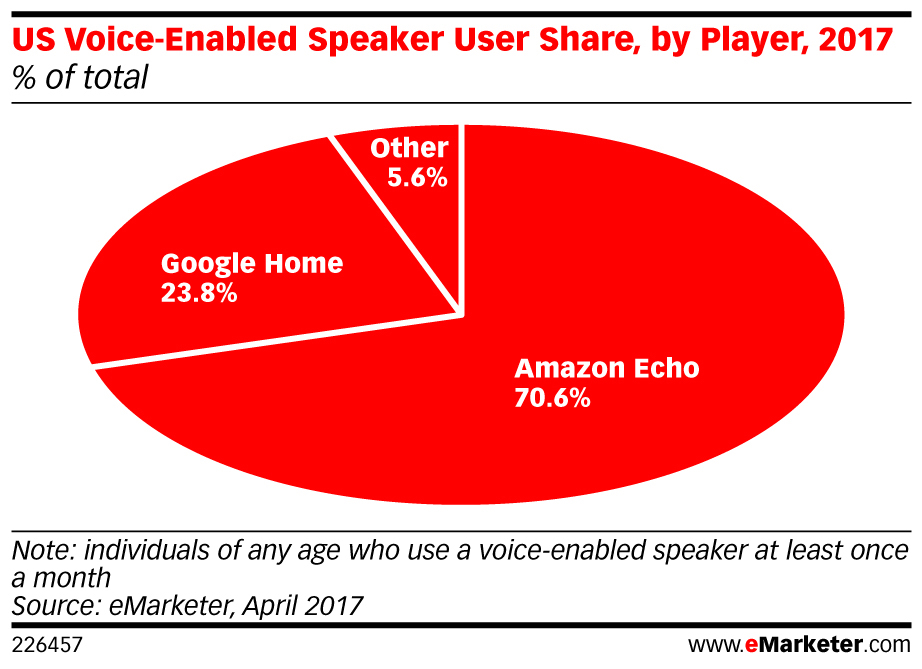The rumor mill says that Apple is working on a Siri-based competitor to the Amazon Echo “smart speaker,” which could debut at next month’s Worldwide Developer Conference. If so, the company has some catching up to do.
While still far from mass adoption, virtual assistants are becoming more widely used by Americans, according to eMarketer’s first forecast on users of digital assistants, such as Siri, and voice-enabled speakers, such as the Amazon Echo. This year, 35.6 million Americans will use a voice-enabled speaker at least once a month, notes the research group. That’s a jump of 128.9% over last year. eMarketer defines a voice-enabled speaker as a standalone device whose core functionality is a voice-enabled digital assistant, such as an Amazon Echo or Google Home.

Amazon’s Echo dominates the market – 70.6% of those who use voice-enabled speakers will use an Echo this year. Google Home trails far behind with just 23.8% of the market. The remaining portion is shared among the smaller players, such as Lenovo, LG, Harmon Kardon, and Mattel.
eMarketer expects Amazon’s share to fall slightly in the coming years, as Google’s share grows. However, the company will remain the dominant player in the category for the foreseeable future.
“Consumers are becoming increasingly comfortable with the technology, which is driving engagement,” says Martín Utreras, eMarketer’s vice president of Forecasting. “Also, as prices decrease and functionality increases, consumers are finding more reasons to increase adoption of these devices.”
The broader category of virtual assistants – the actual software inside various devices – will grow 23.1% this year. Examples include Amazon’s Alexa, Apple’s Siri, Google Now, and Microsoft’s Cortana, utilized through any device.
This year, 60.5 million Americans will use their Siri, Cortana, or other virtual assistant at least once a month, according to eMarketing. That equates to more than one-quarter (27.5%) of smartphone users, or nearly one in five Americans.
The heaviest users of digital assistants are those between 25 and 34. They represent 26.3% of virtual assistant users. In terms of generation, more than one-third of millennials (33.5%) will use their virtual assistants this year.
“Older millennials are the core users of virtual assistants, mainly due to their demand for functionality over entertainment,” says Utreras.
